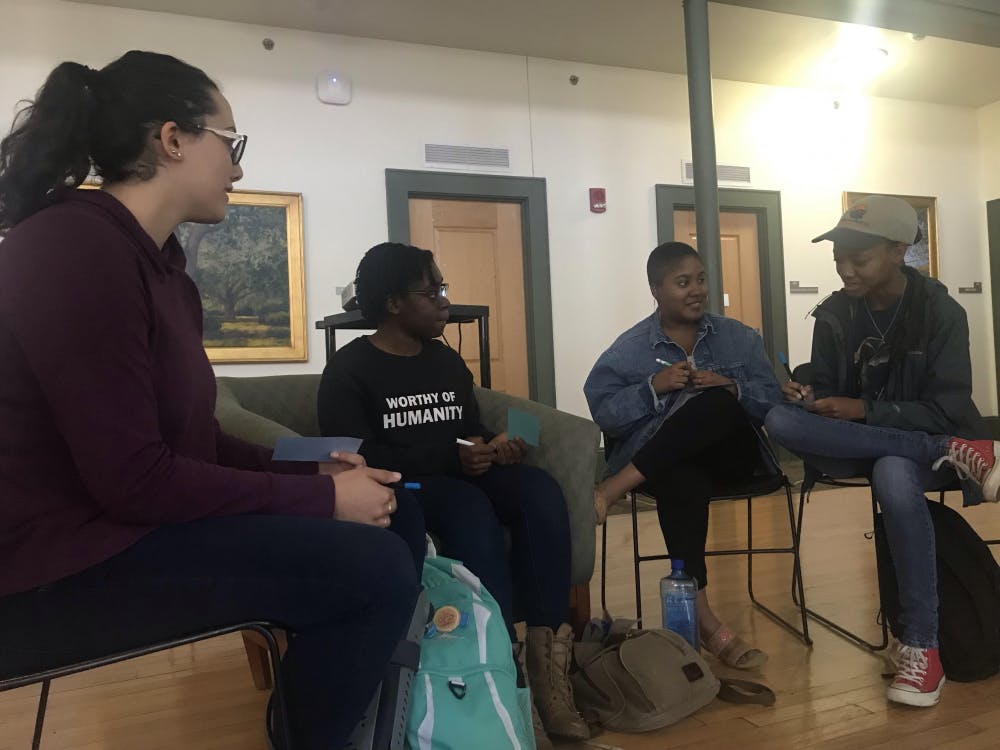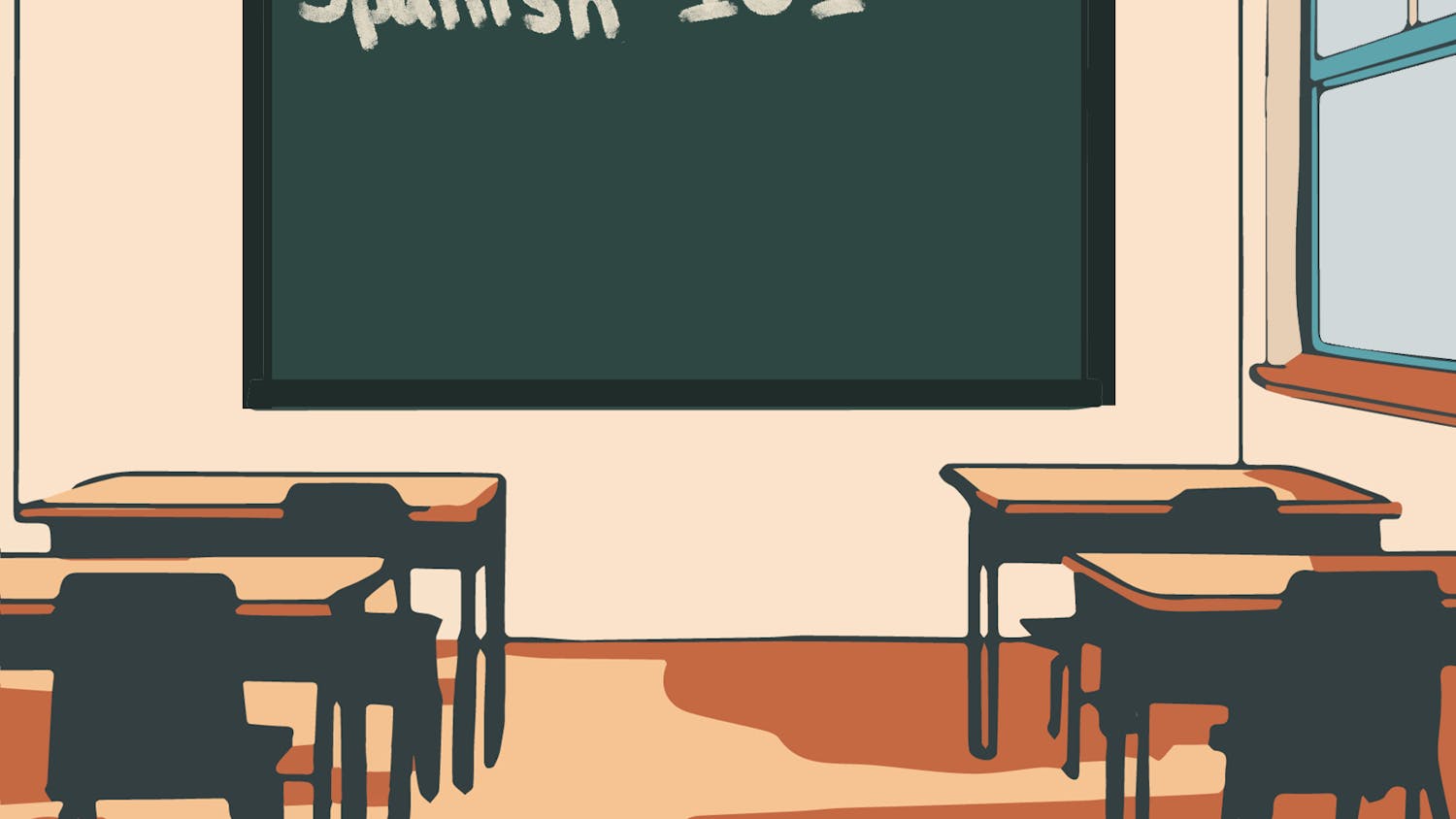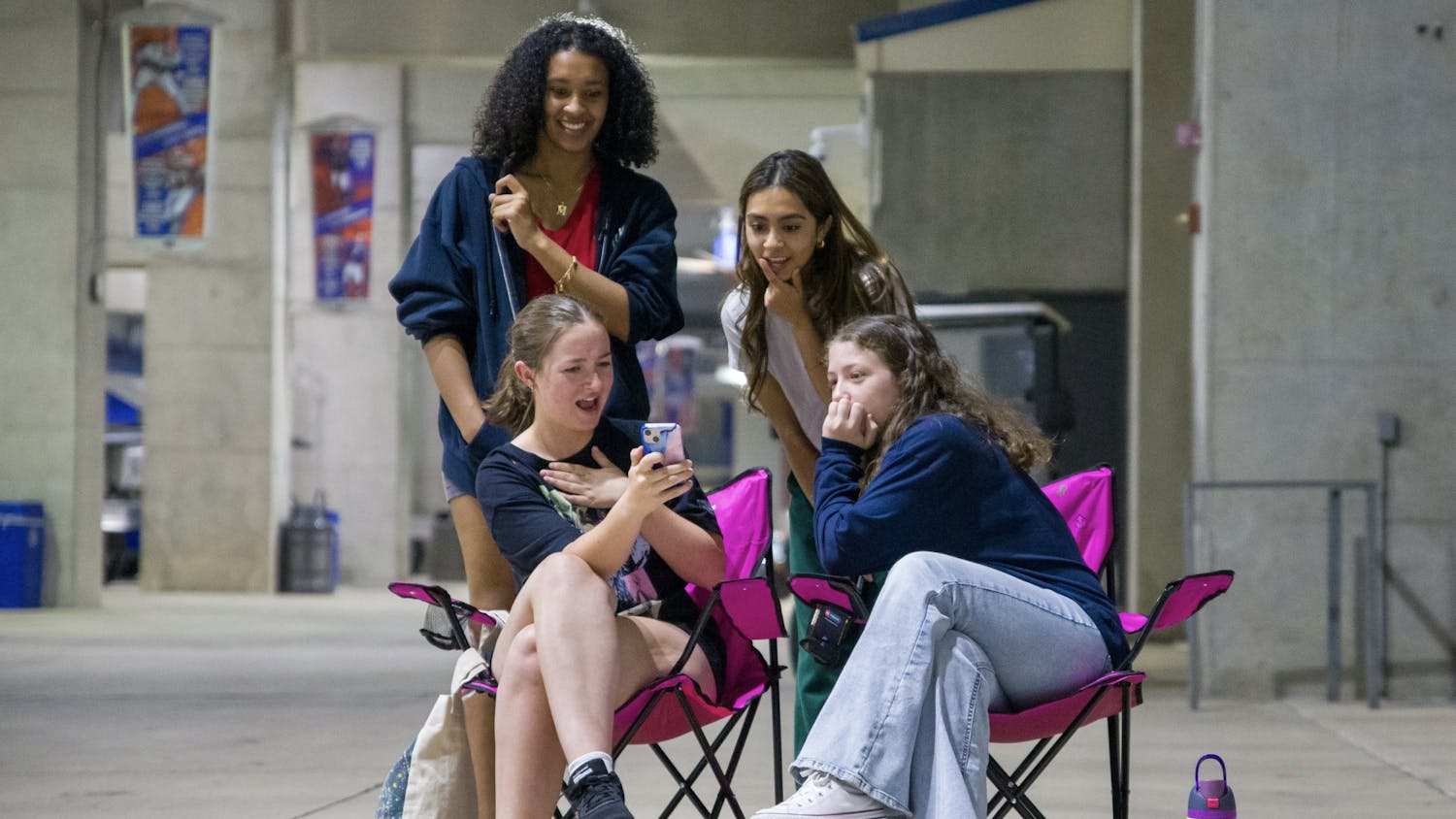Resistance. Empowerment. Surviving. Thriving.
These are the four pillars of healing for black women presented by Della Mosley at Ustler Hall Saturday afternoon during the first open event hosted by The Wellness, Equity, Love, Liberation, and Sexuality Collective (WELLS), a healing and research collective for those of ethnic minority, and queer, transgender and gender-expansive people.
A dozen female students sat in the middle of the building’s atrium as Mosley, an assistant psychology professor and founder of WELLS, introduced Beyond Insecure, a workshop aimed at cultivating academic encouragement among black women and femmes, or feminine identifying people, at UF.
Mosley said she wanted to create a space for students to become aware of some barriers to academic wellness ahead of finals that they may not be aware of.
“I want them to understand that they’re not alone with it and to come up with some strategies, get some empowerment and feel inspired as they go into finals season,” she said.
The workshop was an intervention in the face of attacks on the self-efficacy of black women and femmes in higher education, which is the ability to internally motivate, Mosley said.
Attendees listened to Mosley speak about the different barriers in academia before sharing their experiences with racism, discrimination and tokenism.
Alissa Adam, a 21-year-old UF African-American studies senior who uses they/them pronouns, said they often feel they need to take extra steps to prove who they are to black professors as well as white professors. Black students at UF have to justify themselves and lay out the reasons why they might be able to do things, they said.
“They have worked three times as hard to get to where they are, and then they expect that from you,” Adam said. “So I haven’t found any comfort in most of my black professors here.”
Adam and other attendees were told about the REST model — which stands for resistance, empowerment, surviving and thriving — as a way to cope with their barriers through a holistic approach that centers black women. The event’s co-host Frances Adomako said the REST model addresses one of the major barriers facing black women and femmes — oppression.
“I think sometimes when we are so oppressed in the spaces we’re in, it makes it difficult for us to imagine the future,” said Adomako, a Howard University doctoral student. “When you can’t do that, then you’re just stuck and lose all sense of hope.
During the presentation, Mosley and Adomako encouraged attendees to write raps that “talked back” to barriers they have faced throughout their educational journeys and create personal timelines mapping out the experiences or moments which shaped their growth.
Mosley concluded the workshop by handing out flashcards to the group and asking them to write down what their dreams were and why they deserved them.
After each attendee read their cards aloud, Mosley asked that they all respond with a phrase originally said by African-American science fiction writer Octavia Butler:
“So be it. See to it.”






